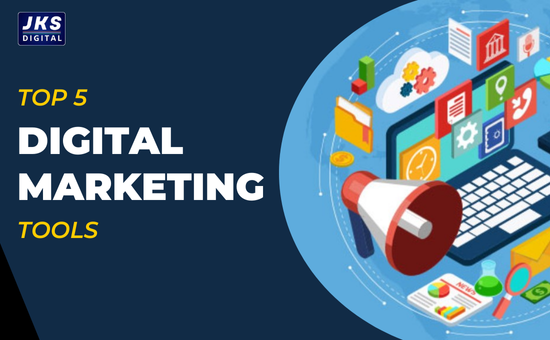Master Local SEO: In today’s digital age, local SEO (Search Engine Optimization) has become a game-changer for businesses aiming to attract nearby customers. Whether you own a small café or manage a multi-location business, mastering local SEO is critical for standing out in local searches and driving foot traffic. This guide walks you through the most crucial local SEO factors to help boost your business online.

What Is Local SEO and Why Does It Matter?
Local SEO is the process of improving your internet presence in order to attract more business from relevant local searches. These searches usually happen on Google and other search engines, often from mobile devices.
For instance, a customer searching for “best coffee shop near me” is likely looking for immediate options nearby. If your business ranks high in such searches, it’s more likely to gain clicks, calls, and visits.
Benefits of Local SEO:
- Increased online visibility within your geographic area.
- Improved website traffic and store visits.
- Higher credibility and trust among local customers.
- Greater chances of outranking competitors.
Key Local SEO Ranking Factors to Focus On
Here are the most impactful elements to boost your business visibility in local search results:
1. Google My Business (GMB) Optimization
Your Google My Business profile is a cornerstone of local SEO. It provides critical business information, including your location, contact details, and operating hours.
- Ensure your business name, address, and phone number (NAP) are accurate.
- Add high-quality images of your business, products, and services.
- Regularly update posts to share promotions or events.
- Collect and respond to customer reviews to build trust.
💡 Tip: Use relevant keywords in your business description for better search visibility.
Read Also – The Best Digital Marketing Tools Every Marketer Should Use
2. Local Keywords Matter
Using location-specific keywords in your content is vital. For example:
- Replace generic phrases like “plumber services” with “affordable plumber in [Your City].”
- Optimize meta titles, descriptions, and content with city or neighborhood names.
💡 Tip: Use tools like Google Keyword Planner to discover local search terms your customers use.
3. Online Reviews and Reputation Management
Positive reviews not only influence customer decisions but also impact your local rankings.
- Encourage happy customers to leave reviews on platforms like Google, Yelp, and Facebook.
- Address negative feedback professionally and resolve issues promptly.
💡 Tip: A mix of recent and detailed reviews boosts trustworthiness.
Read Also – SEO vs. PPC: Which Strategy Works Best for Your Brand?
4. Mobile Optimization
Since most local searches are performed on mobile devices, having a mobile-friendly website is essential.
- Ensure your site loads quickly (ideally within 3 seconds).
- Make navigation easy, with click-to-call buttons for immediate contact.
- Use responsive design to ensure your website looks great on all devices.
💡 Tip: Test your site’s mobile performance using Google’s Mobile-Friendly Test.
5. Location Pages and Local Content
If you operate in multiple areas, create dedicated location pages for each city or region.
- Include accurate NAP information for each branch.
- Share locally relevant content, such as blog posts about community events or area-specific tips.
💡 Tip: Unique content on each location page prevents duplication penalties.
Read Also – Black Hat SEO in 2025: Risks, Penalties, and Alternatives
6. Consistent Citations Across Directories
Citations refer to mentions of your business name, address, and phone number on various platforms. Inconsistent information can hurt your rankings.
- Update your business details across local directories like Yelp, Bing, and Yellow Pages.
- Use citation tools like Moz Local or BrightLocal to manage listings efficiently.
💡 Tip: Consistent citations signal trust to search engines.
7. Local Backlinks
Backlinks from local websites and organizations enhance your authority.
- Partner with nearby businesses for cross-promotions.
- Sponsor local events to gain mentions on event websites.
- Get featured in local news outlets or blogs.
💡 Tip: Quality matters more than quantity when it comes to backlinks.
8. Voice Search Optimization
Voice searches like “Where can I find [service] near me?” are growing. Tailor your content for these queries.
- Use conversational keywords.
- Optimize your FAQ section for natural language questions.
💡 Tip: Aim for concise, straightforward answers in your content.
Monitoring and Improving Your Local SEO Performance
Local SEO is not a one-time effort; it requires ongoing monitoring and improvement.
- Track Rankings: Use tools like Google Analytics and SEMrush to monitor your progress.
- Engage Locally: Stay active in your community and online forums to build credibility.
- Test and Refine: Experiment with new keywords, strategies, and promotions.
Read Also – SEO Trends 2025 for Blogging: Ways to Increase Organic Traffic
Final Thoughts
Mastering local SEO takes time and effort, but the rewards are well worth it. By focusing on Google My Business optimization, local keywords, and consistent citations, you’ll see your business rise in local search results. Remember, the key is to provide value to your local audience while building trust and visibility online.
Start optimizing today and watch your local presence thrive!






